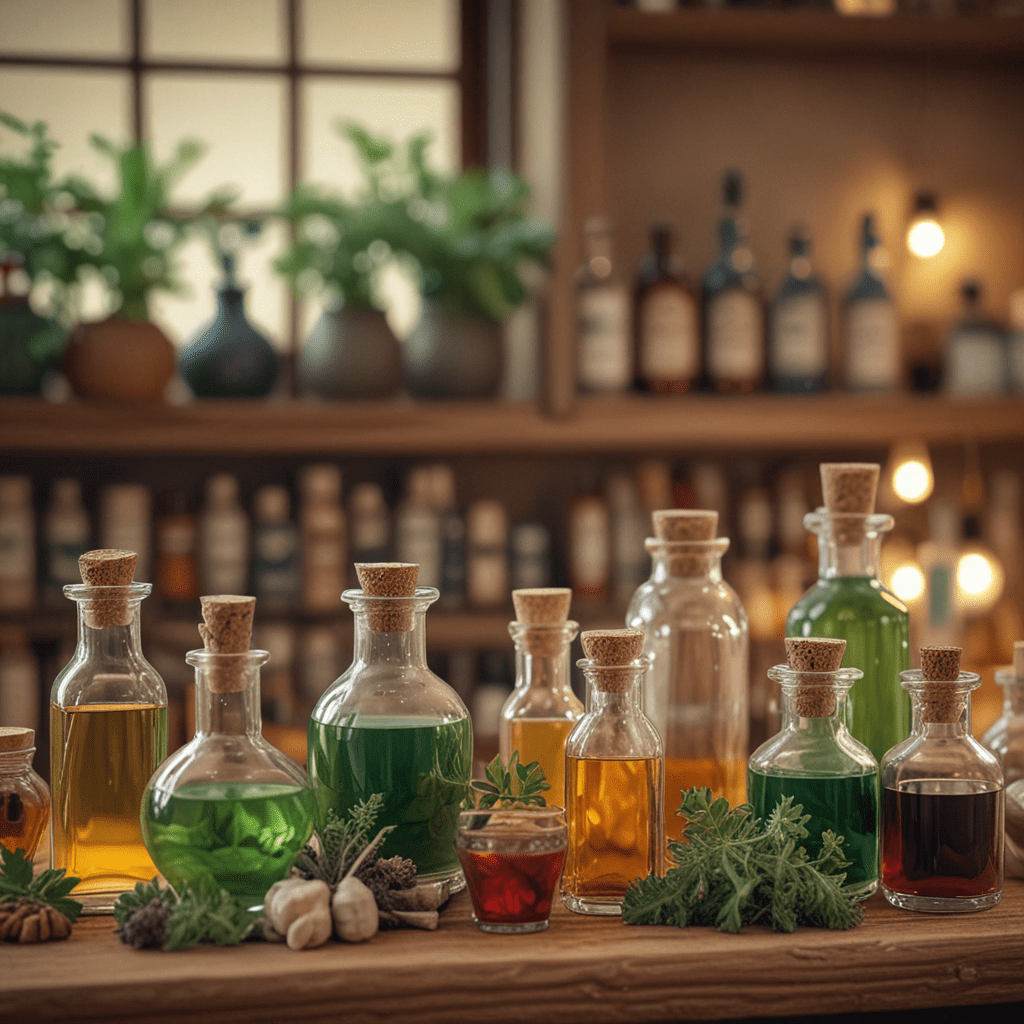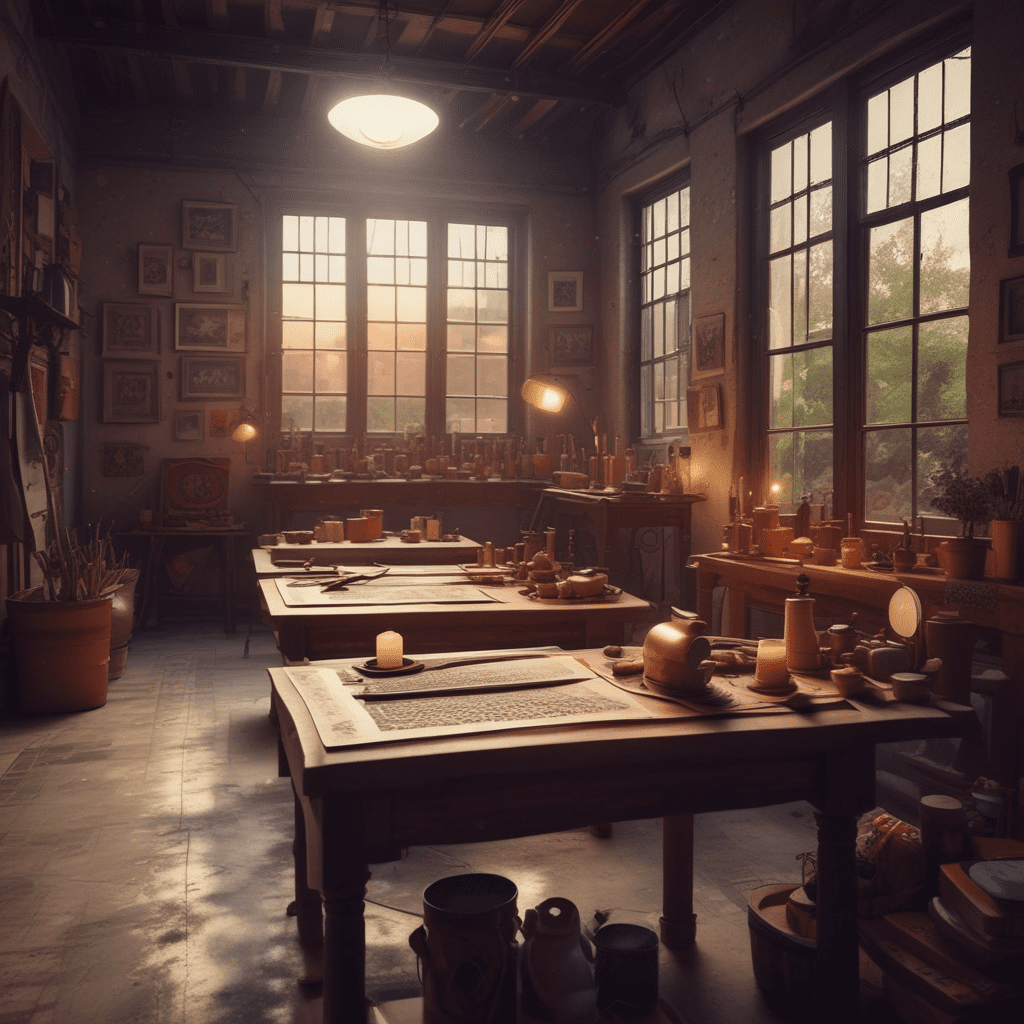
Bahrain’s Traditional Potions and Herbal Remedies
I. Introduction
Bahrain, a captivating archipelago nestled within the Persian Gulf, is not only renowned for its architectural wonders but also harbors a rich legacy of traditional medicine steeped in ancient herbal knowledge. For centuries, the people of Bahrain have harnessed the healing powers of nature to treat various ailments, passing down this wisdom from generation to generation. This article delves into the fascinating world of Bahrain's traditional potions and herbal remedies, exploring the medicinal plants, healing practices, and the vital role of herbalists in the country's healthcare system.
II. Medicinal Plants Used in Traditional Bahrain Medicine
The traditional medicine of Bahrain draws upon a vast array of medicinal plants, each possessing unique therapeutic properties. Some of the most commonly used plants include:
- Sidr Tree (Ziziphus lotus): Renowned for its anti-inflammatory and antioxidant properties, sidr leaves and fruits are used in decoctions to alleviate digestive issues, boost immunity, and promote wound healing.
- Neem (Azadirachta indica): This versatile tree holds a prominent place in Bahraini herbalism, with its leaves, seeds, and oil employed to combat skin ailments, infections, and inflammation.
- Fenugreek (Trigonella foenum-graecum): Traditionally used to enhance lactation, reduce inflammation, and regulate blood sugar levels, fenugreek seeds and leaves find application in various remedial concoctions.
VI. Preparation and Administration of Herbal Medicines
Traditional Bahraini herbal remedies are typically prepared using simple methods to preserve their natural potency. Decoctions, infusions, and macerations are common techniques employed by herbalists. Decoctions involve boiling the plant material in water to extract the active compounds, while infusions entail steeping the herbs in hot water for a period of time. Macerations, on the other hand, involve soaking the plant material in a liquid, such as oil or alcohol, for an extended duration to draw out its therapeutic properties. The resulting herbal concoctions are then administered orally, topically, or through inhalation.
VII. Safety Considerations and Potential Interactions
As with any form of medication, the use of traditional herbal remedies requires careful consideration. While many herbs have been used safely for centuries, it is crucial to be aware of potential side effects and interactions. Some herbs may have contraindications with certain medical conditions or interact with prescription medications, underscoring the importance of consulting a healthcare professional before incorporating herbal remedies into one's regimen. Additionally, the quality and potency of herbal products can vary significantly, emphasizing the need to source herbs from reputable suppliers.
VIII. Integration of Traditional Medicine into Modern Healthcare
In recent years, there has been a growing recognition of the potential benefits of integrating traditional medicine into modern healthcare systems. Traditional healers and herbalists possess valuable knowledge and expertise that can complement conventional medical approaches. By combining the wisdom of traditional medicine with the advancements of modern science, healthcare practitioners can offer a more holistic approach to patient care, addressing both the physical and emotional dimensions of health and well-being.
IX. Preserving Traditional Botanical Knowledge and Its Significance
The traditional botanical knowledge of Bahrain is an invaluable cultural heritage that has been passed down through generations. Safeguarding and preserving this knowledge is essential to ensure its continued availability for future generations. Documentation, research, and community engagement initiatives play a vital role in this endeavor. By fostering intergenerational knowledge transfer and supporting the cultivation and conservation of medicinal plants, we can perpetuate the legacy of traditional herbal healing practices in Bahrain.
X. Concluding Remarks
Bahrain's traditional potions and herbal remedies embody the rich cultural heritage and enduring wisdom of the Bahraini people. Through the use of medicinal plants and time-honored practices, traditional healers have played a pivotal role in maintaining the health and well-being of their communities for centuries. By embracing the integration of traditional medicine into modern healthcare systems and actively preserving botanical knowledge, we can honor the legacy of these healing traditions while ensuring their continued relevance and value in the years to come.
FAQs:
What is the most commonly used medicinal plant in Bahrain?
The sidr tree (Ziziphus lotus) is widely used for its medicinal properties, particularly for digestive issues and wound healing.
How are traditional herbal remedies typically prepared?
Decoctions, infusions, and macerations are common methods used to extract the active compounds from medicinal plants.
Is it safe to use traditional herbal remedies without consulting a healthcare professional?
No, it is crucial to consult a healthcare professional before using traditional herbal remedies, as some may have side effects or interact with prescription medications.
How can we preserve the traditional botanical knowledge of Bahrain?
Documentation, research, community engagement, and supporting the cultivation and conservation of medicinal plants are key to safeguarding this invaluable cultural heritage.
How is traditional medicine being integrated into modern healthcare systems?
Traditional healers and herbalists are increasingly collaborating with conventional healthcare practitioners to offer a more holistic approach to patient care, combining traditional wisdom with modern advancements in medicine.

